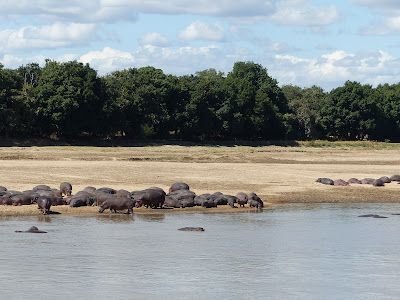Our guide form Nkonzi Bush camp, Sam, like all the guides we have encountered in Zambia is an expert in so many aspects of the natural world.
From the habits and lifestyle of large carnivores, to the smallest of beetles these guides really know there stuff.
This is shown nowhere more than on a game walk. Here, immersed in the African bush they reveal the smallest details of plants, soils, geology, animal tracks and spoore.
In one breath they will use the Latin name for the group a plant belongs to and detail the local medicinal or food uses the plant has.
These are people with the perfect combination of book knowledge and practical know how. I am always in awe of how much our guides know and their ability to explain it to mere mortals like us.
From the habits and lifestyle of large carnivores, to the smallest of beetles these guides really know there stuff.
This is shown nowhere more than on a game walk. Here, immersed in the African bush they reveal the smallest details of plants, soils, geology, animal tracks and spoore.
In one breath they will use the Latin name for the group a plant belongs to and detail the local medicinal or food uses the plant has.
These are people with the perfect combination of book knowledge and practical know how. I am always in awe of how much our guides know and their ability to explain it to mere mortals like us.




















